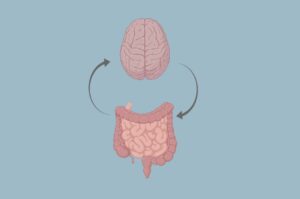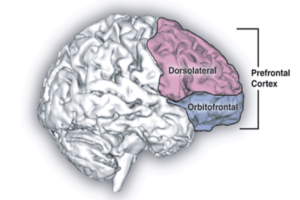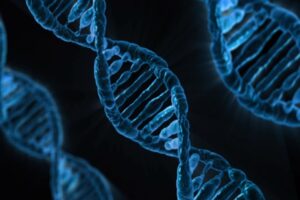
Figure: Icicles like these, which have formed on a house in Montreal, Canada, demonstrate the rigidity that comes to mind for most people when they think of ice. However, a new discovery has revealed the existence of elastic ice that can bend without breaking. (Source: Wikimedia Commons, Natasha2006)
When people think about ice, “flexible” is likely not a word that comes to mind. However, flexible ice is precisely what scientists created in a recent study out of Zhejiang University. Some of the single-crystal ice microfibers were thinner than human hair, ranging between 10 micrometers and 800 nanometers in diameter, and they bounced back into shape after being bent (Xu et al., 2021).
How is this possible? The answer seems to lie in the purity of the ice crystals. Ordinary ice is full of imperfections like cracks and misaligned crystal sections (Conover, 2021). The elastic ice microfibers were distinct, however, because of the lower amount of such defects and more even distribution of stress. The uniform diameter of the elastic ice microfibers resulted from being grown at a temperature of -50°C from the end of a tungsten needle tip, which is one atom thick. A 2kV voltage was applied to the needle to facilitate enhanced water molecule diffusion, resulting in a faster growth rate of fiber length (Xu et al., 2021).
Given the specialized technique used to grow the elastic ice microfibers, it can be hard to imagine such crystals occurring naturally. However, snowflakes might contain sections composed of single, ultra-thin ice crystals, and it is plausible that these snowflake sections would be capable of bending just as the ice microfibers grown by Xu et al. (2021) did. To find more naturally occurring elastic ice, researchers have looked not up into the sky, but down into ice shelves on the Antarctic Peninsula. The largest remaining ice shelf in this region is made vulnerable to collapse by numerous crevasses beginning at its base. The Larsen C Ice Shelf has remained surprisingly resilient despite these crevasses, though. The secret to its stability might lie in suture zones: ribbon-like sections of ice that partially result from more buoyant freshwater rising in the sections between glacial inflows. Suture zones are capable of bending, and this flexibility can help prevent existing crevasses from spreading throughout an ice shelf (UPI Space Daily Staff, 2012).
Future investigations into elastic ice might search for additional natural instances of this phenomenon. Understanding the formation and purpose of suture zones like those in the Larsen C Ice Shelf could prove valuable in the effort to preserve Earth’s ice reserves in the face of climate change. As one of the most abundant crystalline solids on the planet, ice certainly leaves researchers with plenty of specimens to study (Xu et al., 2021).
References
- Conover, E. (2021, July 8). These weird, thin ice crystals are springy and bendy. Science News. https://www.sciencenews.org/article/physics-weird-thin-ice-crystals-bend-flexible
- UPI Space Daily Staff. (2012, December 12). Massive crevasses and bendable ice affect stability of Antarctic ice shelf, CU research team finds. UPI Space Daily. http://www.proquest.com/docview/1237220312/citation/9EA8E7CAEF984A46PQ/1
- Xu, P., Cui, B., Bu, Y., Wang, H., Guo, X., Wang, P., Shen, Y. R., & Tong, L. (2021). Elastic ice microfibers. Science, 373(6551), 187–192. https://doi.org/10.1126/science.abh3754
Related Posts
Failures of Facial Recognition Amid Widespread Masking
Cover Image: Signs similar to this one have become increasingly...
Read MoreThe Microbiota-Gut-Brain Axis May Be the Missing Link Between Autism Spectrum Disorder and Anorexia Nervosa
Figure 1: The microbiota-gut-brain axis is a bidirectional pathway of...
Read MoreVideo Games Shape Childhood Cognitive Development
Source: Caleb Oquendo The first video game was introduced in...
Read MoreAn Overview of Modern Brain-Imaging Techniques
Figure: An image of a Magnetic Resonance Imaging (MRI) scan....
Read MoreStudy Reveals the Prefrontal Cortex is a Key Conductor in Sleep Regulation
Source: Laboratoires Servier, (CC BY-SA 3.0) Sleep is a fundamental...
Read MoreHuman Endogenous Retroviruses Might Unlock a New Field of Neurodegenerative Disease Research
Figure 1: Researchers have found viral genetic materials within the...
Read MoreCaroline Conway






